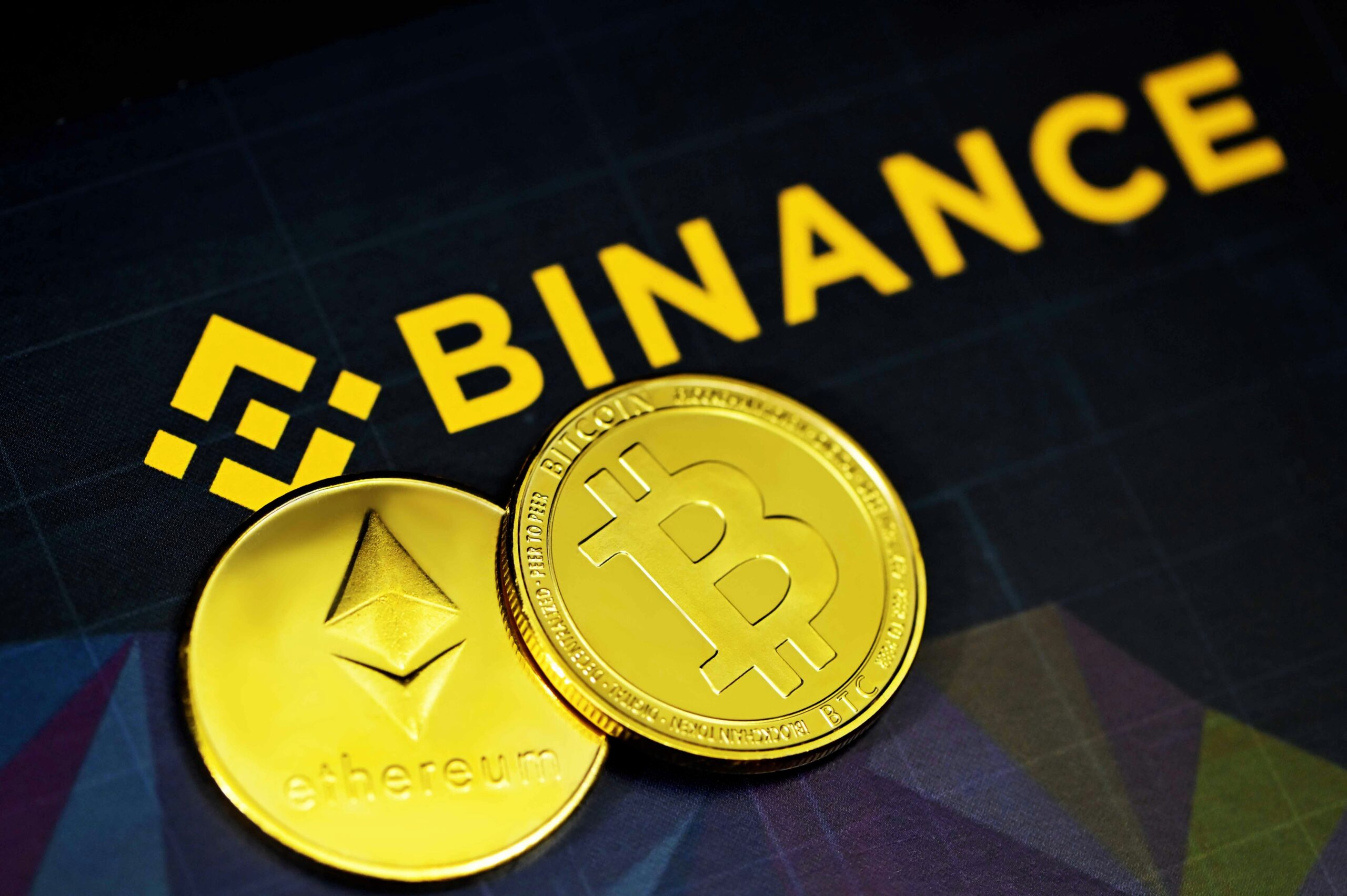Business
Crypto: Binance gives two conditions to register under Nigeria’s SEC

Crypto: Binance gives two conditions to register under Nigeria’s SEC
The cryptocurrency trading platform Binance has outlined two conditions that must be met before it can consider registering under Nigeria’s Securities and Exchange Commission’s (SEC) special framework program for onboarding Virtual Assets Service Providers (VASPs), including crypto platforms.
Binance’s position is in response to the regulatory frameworks set out for cryptocurrency platforms by Nigeria’s regulatory body, SEC, which includes opening an office in Nigeria.
Nairametrics previously reported that, among other requirements, the SEC’s framework applies to virtual asset service providers and token issuers conducting business in Nigeria or offering services to Nigerian consumers, including platforms that facilitate the offering, trading, exchange, custody, and transfer of virtual/digital assets.
Nairametrics previously reported that the SEC granted an Approval-in-Principle to two crypto exchanges, Quidax and Busha, giving them the status of legally recognized crypto trading platforms in the country under the Accelerated Regulatory Incubation Programme (ARIP).
Through ARIP, the SEC has opened the door for cryptocurrency platforms to come under the federal government’s regulatory purview, considering tax obligations and other pertinent national security issues.
READ ALSO:
- Police recover 111 stolen vehicles in one month, arrest 271 murder suspects
- Abdulsalami to FG: Hardship getting out of control in Nigeria
- Tinubu signed 2023 election peace accords, Presidency faults Kukah
In response, a Binance spokesperson told Nairametrics in an exclusive interview that two conditions must be met before it may consider joining ARIP.
Here are the conditions:
- Release of Detained Binance Executive, Tigran Gambaryan
Binance believes that its executive must be released from Nigerian custody before it can explore joining ARIP.
- Settlement with the Nigerian Government
Recall that Nigeria’s Minister of Information, Idris Mohammed, had accused Binance of having a turnover of over $20 billion in Nigeria in 2023 alone, without paying taxes.
The federal government has already commenced prosecution of Binance on the grounds of tax evasion, money laundering, and foreign exchange contravention, while the platform denies these allegations.
The spokesperson stressed that until legal and regulatory bottlenecks with Nigerian government authorities are resolved, coming under the SEC’s program is not in view.
“We are pleased that Nigeria is making progress in the development of its digital assets regime. We hope that someday soon, once Tigran has been freed and our issues are settled, we may seek registration,” the Binance spokesperson stated.
Binance yet to register
According to our source at the SEC, Binance still enjoys significant patronage from Nigerians and does not see the need to comply with the Commission’s onboarding framework, which mandates that all VASPs, including crypto firms, establish an office in Nigeria under ARIP.
READ ALSO:
- Presidency speaks on reports of Tinubu asking CBN gov Cardoso to resign
- Police arrest 2,700 suspects in crackdown on gunrunning syndicate
- Liverpool fan killed while crossing highway in Italy
The source, who chose not to be named because the official was not authorized to speak, mentioned that many VASPs’ requests to join the framework are currently pending.
The source told Nairametrics in an exclusive chat that the Commission anticipates Binance will register in Nigeria, although the crypto exchange firm does not see the need due to its patronage from Nigerians.
The official stated that Nigerians still trade with Binance, but the only restriction is on bank transfers.
“Binance is not regulated by the SEC in Nigeria. That is why we are trying to make them register, but they say they don’t need to register because Nigerians already have access to their platform. That is why they are not coming to register. They see no need,” the source added.
The official also revealed that, due to ongoing court cases against Binance in Nigeria, the platform has somewhat reduced its influence on Nigerians, although Nigerians still use Binance features through virtual private networks (VPNs) and other means.
The official emphasized that the SEC does not regulate foreign crypto firms, but under its rules, every foreign crypto platform must establish an office in Nigeria so the Commission can supervise them.
The source added that, in the long run, Binance will have to register due to the high number of Nigerians trading on their platform.
Nairametrics also reached out to SEC Director Abdulkadir Abbas regarding Binance. His response was that the SEC’s press release on ARIP and approval for Quidax and a few others remains Nigeria’s “position” for all cryptocurrency platforms seeking to operate lawfully in Nigeria.
Meanwhile, another source familiar with developments at Binance’s legal dispute with the federal government confirmed to Nairametrics that the crypto firm has not adhered to the SEC’s framework because they believe it is not supported by any law of the National Assembly.
Additionally, the source claimed the framework was allegedly hurriedly formulated by the SEC after the arrest and arraignment of its executives by Nigerian authorities.
Crypto: Binance gives two conditions to register under Nigeria’s SEC
Nairametrics
Railway
Lagos Rail Mass Transit part of FG free train ride – NRC

Lagos Rail Mass Transit part of FG free train ride – NRC
The Nigerian Railway Corporation (NRC) has disclosed that the Lagos Rail Mass Transit (LRMT) trains are included in the Federal Government’s free train ride initiative for the Christmas and New Year celebrations.
The LRMT, which currently includes the Phase 1 Blue Line Rail and the Phase 1 of the Red Line Rail, operates under the Lagos Metropolitan Area Transport Authority (LAMATA).
This announcement was made by Ben Iloanusi, the Acting Managing Director of the NRC, during an interview on NTA News TV on Friday, following the launch of the initiative earlier that day.
While Iloanusi stated that Phase 1 of both the Blue Line and Red Line Rail projects are part of the program, LAMATA has yet to confirm this inclusion.
READ ALSO:
- Nigeria denies alleged plot to destabilise Niger Republic
- Navy arrests 19 Nigerians attempting to reach Europe by hiding on ship
- Troops arrest four Ambazonian rebels in Taraba
Iloanusi outlined the other routes benefiting from the scheme, which include the Lagos-Ibadan Train Service, Kaduna-Abuja Train Service, Warri-Itakpe Train Service, Port Harcourt-Aba Train Service, and the Bola Ahmed Tinubu Mass Transit in Lagos. Notably, little was previously known about the Bola Ahmed Tinubu Mass Transit service until this disclosure.
“Let me mention the routes where this free train service is happening. We have the Lagos-Ibadan Train Service, we have the Kaduna-Abuja Train Service, we have the Warri-Itakpe Train Service, we have the Lagos Rail Mass Transit trains, we have the Port Harcourt-Aba Train Service, and we have what we call the Bola Ahmed Tinubu Mass Transit, which is also in Lagos,” he stated.
Iloanusi provided operational updates, stating that passengers nationwide can access free tickets online or, for those unable to do so, at train stations where they will be profiled and validated.
He noted that passengers using NRC-managed services (excluding the Lagos Rail Mass Transit) should reserve tickets via the official website, www.nrc.gov.ng, with a valid ID required. He also advised travelers to plan, arrive on time, and bring valid identification.
Lagos Rail Mass Transit part of FG free train ride – NRC
Business
NNPC denies claim of Port Harcourt refinery shutdown

NNPC denies claim of Port Harcourt refinery shutdown
The Nigerian National Petroleum Company Limited (NNPCL) has denied claims in media reports that the newly refurbished Port Harcourt refinery has shut down.
The national oil company denied the claim in a press release issued by its Chief Corporate Communications Officer, Olufemi Soneye, on Saturday.
Soneye said the claim was false and urged Nigerians to disregard it. He stressed that the Port-Harcourt Refinery is fully operational.
READ ALSO:
- Like Ibadan, stampede claim 10 lives for Abuja Catholic church, 17 in Anambra
- Marketers react after NNPCL slashes petrol price to N899 per litre
- Electricity: We installed 184,507 meters, issued 50 licences in Q3, says FG
The statement read, “The attention of the Nigerian National Petroleum Company Limited (NNPC Ltd.) has been drawn to reports in a section of the media alleging that the Old Port Harcourt Refinery which was re-streamed two months ago has been shut down.
“We wish to clarify that such reports are totally false as the refinery is fully operational as verified a few days ago by former Group Managing Directors of NNPC.”
He noted that preparation for the day’s loading operation is currently ongoing, and added that claims of the shutdown are “figments of the imagination of those who want to create artificial scarcity and rip-off Nigerians.”
NNPC denies claim of Port Harcourt refinery shutdown
Business
CBN permits BDCs to buy up to $25,000 FX weekly from NFEM

CBN permits BDCs to buy up to $25,000 FX weekly from NFEM
The Central Bank of Nigeria (CBN) has granted Bureau de Change (BDC) operators temporary permission to purchase up to $25,000 weekly in foreign exchange (FX) from the Nigerian Foreign Exchange Market (NFEM).
The Central Bank of Nigeria (CBN) has granted Bureau de Change (BDC) operators temporary permission to purchase up to $25,000 weekly in foreign exchange (FX) from the Nigerian Foreign Exchange Market (NFEM).
This move, detailed in a circular dated December 19, 2024, is designed to meet seasonal retail demand for FX during the holiday period.
The circular was signed by T.G. Allu, on behalf of the Acting Director of the Trade and Exchange Department.
The arrangement will be in effect from December 19, 2024, to January 30, 2025.
Under the directive, BDCs may purchase FX from a single Authorized Dealer of their choice, provided they fully fund their accounts before accessing the market.
Transactions to occur at the prevailing NFEM rate
The transactions will occur at the prevailing NFEM rate, and BDCs are required to adhere to a maximum 1% spread when pricing FX for retail end-users.
READ ALSO:
- Badenoch’s negative portrayal of Nigeria Police unfair-PCRC
- Bitcoin price crashes to $95,000 as market continues to react to Federal rate cuts
- Bauchi high court dismisses blasphemy, cybercrime charges against Rhoda Jatau
All transactions conducted under this scheme must be reported to the CBN’s Trade and Exchange Department.
The circular read in part:
“In order to meet expected seasonal demand for foreign exchange, the CBN is allowing a temporary access for all existing BDCs to the NFEM for the purchase of FX from Authorised Dealers, subject to a weekly cap of USD 25,000.00 (Twenty-five thousand dollars only).
This window will be open between December 19, 2024 to January 30, 2025.
“BDC operators can purchase FX under this arrangement from only one Authorized Dealer of their choice and will be required to fully fund their account before accessing the market at the prevailing NFEM rate. All transactions with BDCs should be reported to the Trade and Exchange department, and a maximum spread of 1% is allowed on the pricing offered by BDCs to retail end-users.”
The CBN assured the general public that PTA (Personal Travel Allowance) and BTA (Business Travel Allowance) remain available through banks for legitimate travel and business needs.”
These transactions are to be conducted at “market-determined exchange rates” within the NFEM framework.
This initiative reflects the CBN’s strategy to stabilize the FX market and manage seasonal surges in demand.
CBN permits BDCs to buy up to $25,000 FX weekly from NFEM
-

 Railway1 day ago
Railway1 day agoLagos Rail Mass Transit part of FG free train ride – NRC
-

 metro13 hours ago
metro13 hours agoWhy we displayed ‘Jesus Christ is not God’ banner at Lekki mosque -Imam
-

 metro2 days ago
metro2 days agoCourt stops customs from seizing imported rice in open market
-

 metro3 days ago
metro3 days agoIbadan stampede: Tinubu orders probe as death toll hits 40
-

 metro2 days ago
metro2 days agoIbadan stampede: Ooni reacts after arrest of ex-wife
-

 metro1 day ago
metro1 day agoNIMC warns against extortion, reaffirms free NIN enrollment
-

 metro3 days ago
metro3 days agoAfe Babalola: Court grants Dele Farotimi bail, barred from media interviews
-

 News3 days ago
News3 days agoAdebayo Ogunlesi, 2 other Nigerians make Forbes 50 wealthiest Black Americans list 2024













